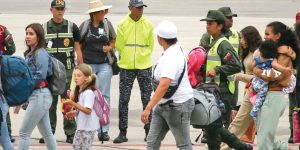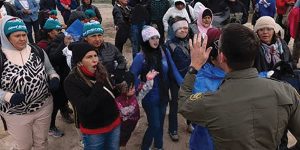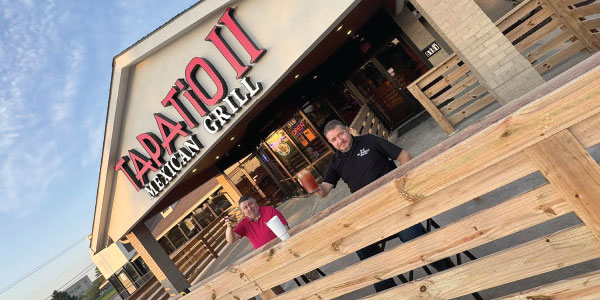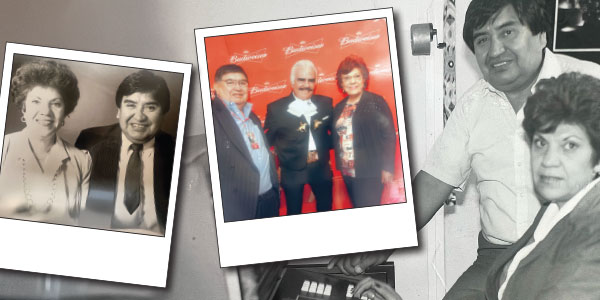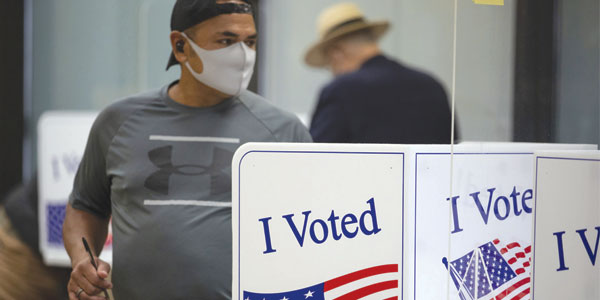
This year, 2020, has been and continues to be historic. The coronavirus pandemic has dictated how we live since late February. Thousands of K-12 students didn’t return to school after spring break, converting instead to remote learning. There were no spring proms, and the only graduation ceremonies, most of which were delayed, were virtual or held outside with limited attendance. Public swimming pools and summer camps were cancelled. Major League Baseball played a shortened season without fans in the stands.
Businesses and nonprofits are struggling financially. So are local governments. The unemployment rate in October 2019 reached 3.5 percent, the lowest level in 50 years. The pandemic has sent it spiraling to 7.9 percent in September 2020, according to the U.S. Bureau of Labor Statistics.
Record-breaking wildfires in the West have incinerated over seven million acres, and they’re still blazing. The Atlantic hurricane season is just three storms shy of breaking the record for the most active hurricane season ever. And on Monday, Hurricane Zeta formed in Mexico and is headed for America’s Gulf coast. Last month, Goodland, Kan., and eight other locations had their earliest ever snowfall. Goodland picked up a half-inch of snow on Sept. 9, meteorologists reported.
Next Tuesday (Nov. 3), Americans will elect a president to steer this troubled ship of state for the next four years, along with other federal officeholders and state and local officials. We’ve already seen historic levels of voter turnout. As of Monday, NPR reported, Americans had already cast a whopping 62 million early ballots. Early voting in Kansas opened on Oct. 14. Missouri doesn’t offer early voting, but voters could request by Oct. 21 an absentee or mail-in ballot which must be returned by 7 pm on Nov. 3 and in most cases must be notarized.
The countdown is on to Election Day. Four days remain as of today for voters to educate ourselves about the election. In this digital age, it’s never been easier. The nonpartisan League of Women Voters has put together and posted easily accessed, comprehensive voter information online for every state. For Kansans, the Web address is https://www.vote411.org/kansas; for Missourians, https://www.vote411.org/missouri.
A well-informed electorate is essential to our democracy, scholars, political scientists and democratic theorists posit. When we’re not clear about whom and what we’re voting for, we aren’t left with much incentive to vote. But then, how much is an uninformed ballot worth anyway?
________________________________________________________________________
Infórmese y vote
Este año, 2020, ha sido y sigue siendo histórico. La pandemia del coronavirus ha dictaminado cómo vivimos desde finales de febrero. Miles de estudiantes de K-12 no regresaron a las escuelas después del descanso de primavera, sino que cambiaron al aprendizaje remoto. No hubo bailes de primavera y las únicas ceremonias de graduación, la mayoría de las cuales se retrasaron, fueron virtuales o se llevaron a cabo al aire libre con asistencia limitada. Se cancelaron las piscinas públicas y los campamentos de verano. La Major League Baseball jugó una temporada corta sin fanáticos en las gradas.
Las empresas y las organizaciones sin fines de lucro están teniendo dificultades financieramente. También lo están los gobiernos locales. La tasa de desempleo en octubre de 2019 alcanzó el 3,5 por ciento, el nivel más bajo en 50 años. La pandemia la ha disparado al 7,9 por ciento en septiembre de 2020, según la Oficina de Estadísticas Laborales.
Los incendios forestales que batieron records en el Oeste han incinerado más de siete millones de acres y todavía están ardiendo. La temporada de huracanes en el Atlántico está a sólo tres tormentas de romper el récord de la temporada de huracanes más activa de la historia. Y el lunes, el huracán Zeta se formó en México y se dirige a la costa del Golfo de Estados Unidos. El mes pasado, Goodland, Kansas, y otros ocho lugares tuvieron las primeras nevadas. Goodland acumuló media pulgada de nieve el 9 de septiembre, informaron meteorólogos.
El próximo martes (3 de noviembre), los estadounidenses elegirán un presidente para que dirija este problemático barco durante los próximos cuatro años, junto con otros funcionarios federales y funcionarios estatales y locales. Ya hemos visto niveles históricos de participación electoral. Hasta el lunes, reportó NPR, los estadounidenses ya habían emitido el número record de 62 millones de votos anticipados. La votación anticipada en Kansas se abrió el 14 de octubre. Missouri no ofrece votación anticipada, pero los votantes pueden solicitar antes del 21 de octubre una boleta de voto ausente o por correo que debe devolverse antes de las 7 pm del 3 de noviembre y en la mayoría de los casos debe ser notariada.
La cuenta regresiva al día de las elecciones ya comenzó. Quedan cuatro días a partir de hoy para que los votantes nos eduquemos sobre las elecciones. En esta era digital, nunca ha sido tan fácil. La Liga de Mujeres Votantes, no partidista, ha reunido y publicado en línea información de votantes completa y de fácil acceso para cada estado. Para los habitantes de Kansas, la dirección web es https://www.vote411.org/kansas; para los habitantes de Misuri, https://www.vote411.org/missouri.
Un electorado bien informado es esencial para nuestra democracia, postulan los académicos, los científicos políticos y los teóricos democráticos. Cuando no tenemos claro por quién y por qué votamos, no nos quedan muchos incentivos para votar. Pero entonces, ¿cuánto vale una votación desinformada de todos modos?



